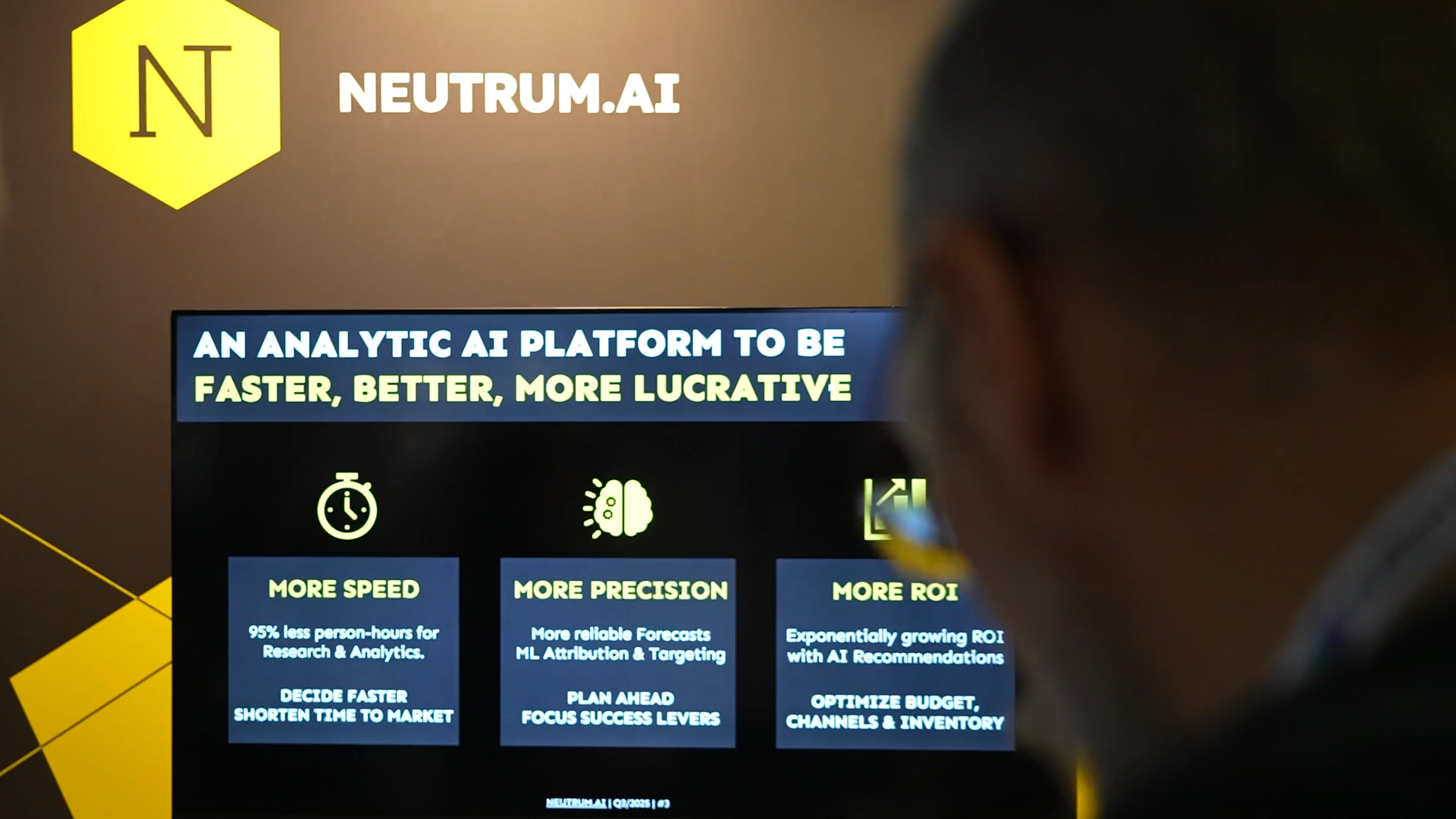The topic of artificial intelligence is driving companies worldwide – between enthusiasm for new possibilities and questions about concrete benefits. At the trade fair, the Bremen-based company Hase & Igel will show how AI is used not only as a trend, but as a strategic tool. With its cloud software system Neutrum, the provider is launching a solution that brings together data from silos, enriches it with market data, and thus creates the basis for informed decisions. The goal is to take AI out of the hype cycle and generate real return on investment (ROI) in core processes.
One of the biggest challenges in everyday business life is isolated data silos. Sales, marketing, production, and customer service often store information separately, resulting in a lack of overall perspective. Neutrum solves this problem by centrally consolidating data from all areas. Sales and revenue statistics, CRM information on customer interactions, production data, and even logistics metrics flow into the platform. In addition, external market data is integrated: demand trends, competitive analyses, and economic conditions such as legal requirements or raw material prices. This creates a comprehensive data basis that goes far beyond traditional business intelligence approaches.
What makes Neutrum special is the enrichment of internal data with external sources. However, simply adding more information is not enough – the platform consolidates the data, compares it, and reveals interactions. For example, an increase in sales is put into relation to overall market development. This allows companies to see whether they are gaining market share or losing it to competitors despite growth.

Powerful AI algorithms work on the basis of this consolidated data, continuously learning which factors determine sales and growth. They provide ongoing forecasts and recommended measures for companies to optimally align their processes and budgets. Unlike traditional BI systems, which remain past-oriented, Neutrum combines internal and external data in real time, thus creating a concrete basis for decision-making. Neutrum thus goes beyond traditional BI systems, which are limited to backward-looking analyses. The system also differs from classic market analysis tools, which look at external trends but do not link them to the reality of the company. Neutrum provides tailor-made recommendations for action that can be immediately applied in business.
The system answers questions that are crucial for strategic management:
Since its launch in 2018, Neutrum has gained around 200 customers in eight countries. Today, the system is used in over 30 markets in Europe and Asia, with expansion into the US imminent. International awards and numerous positive test reports confirm its innovative character. Particular emphasis is placed on the fact that Neutrum does not act as generic AI, but addresses specific business challenges and provides directly actionable recommendations.
A key future trend is the transition to agentic AI. Companies are increasingly moving away from monolithic solutions that are designed to map all tasks centrally. Instead, they are relying on modular structures – systems that can be assembled like building blocks. Neutrum is prepared for this: it can communicate with different platforms, exchange data bidirectionally, and thus be integrated into a variety of existing infrastructures. The ability to work with multiple agents and different LLMs simultaneously opens up new possibilities. Companies orchestrate their systems according to the Lego principle and design a customized architecture that exactly fits their needs.
Neutrum's greatest added value lies in the transformation of data into control-relevant information. While AI has long been considered a fascinating but abstract technology, its direct benefits are evident here: decisions are no longer made on the basis of partial information, but on the basis of a comprehensive, realistic overall picture.
Neutrum represents a new generation of AI solutions. The platform integrates internal and external data, consolidates information, and transforms it into practical recommendations. With the support of Agentic AI and the ability to combine modular systems, it offers companies the opportunity to build their digital infrastructure in a flexible and scalable way. The journey leads away from experimental AI use and toward a technology that structures everyday business, refines decisions, and enables long-term growth.